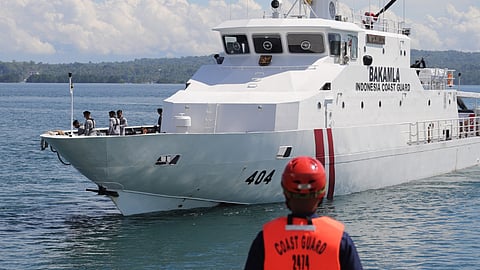

The Philippines’ transparency initiative is crucial for addressing and countering disinformation and misinformation, as well as exposing China’s unlawful activities in the South China Sea.
Even though Indonesia often faces similar threats from China in the North Natuna Sea, it is less likely to implement such a transparency initiative. It would likely prefer to maintain inflows of Chinese investment.
In the past few years, photos and videos of encounters between the Philippine and Chinese coast guards in the South China Sea have proliferated online. The Philippine Coast Guard has published videos online that are then widely shared by international news outlets and on social media.
These publications are not a coincidence as Manila has implemented what it calls a "transparency initiative" since 2023. That initiative aims to expose and publicise any incident in the disputed area between China and the Philippines.
The initiative aims to expose the Chinese coast guard’s coercive and reckless behaviour in the South China Sea, including use of a laser weapon and water cannon, as well as close and risky physical encounters with Philippine coast guard vessels.
By exposing China’s aggression, the Philippines aims to increase its domestic and international support in facing China’s coercion. By exposing this behaviour to the international community, it aims to put pressure on China to comply with international law and refrain from such reckless and provocative behaviour.
However, it is difficult to determine whether the transparency meets its objective.
An article in Fulcrum argued that if the initiative aimed to raise domestic and international awareness of China’s coercive behaviour, it might be successful. However, if it aimed to dissuade and change China’s behaviour, it might not be so successful. Indeed, China has reportedly conducted a number of intrusions since the transparency initiative’s implementation.
China’s provocative behaviour is not only particular to the Philippines; other claimant states in the South China Sea, including Vietnam and Malaysia, have reportedly been targets of China’s coercive behaviour.
Additionally, while it is not a claimant state, Indonesia has also faced Chinese aggression in the North Natuna Sea, where China’s nine-dash line and Indonesia’s exclusive economic zone overlap.
Yet transparency initiatives may not always be a policy choice for other Southeast Asian countries, such as Indonesia. One of the main reasons behind this was that they often don’t want to risk their economic ties with China by implementing a policy that publicly names and shames Beijing.
Indeed, economic relations are the predominant reason why other Southeast Asian countries, including Indonesia, may be reluctant to implement such a transparency initiative. Jakarta has often tried to avoid public "megaphone" diplomacy of naming and shaming Beijing’s intrusions, even though the government continues diplomatic protests against China’s aggressive behaviour.
Indonesia may be reluctant to follow the Philippines’ path due to its economic relations with China.
Indeed, if we compare Chinese investment in Indonesia and the Philippines, the numbers are very different. China’s investment in the Philippines in 2023 was more than US$155 million. In comparison, China’s investment in Indonesia in 2023 was more than US$3 billion.
Maintaining this level of economic relations is likely why Jakarta wants to avoid any direct confrontation in the North Natuna Sea.
Moreover, since President Prabowo Subianto came to office last year, he has shown interest in a closer economic relationship with China. For example, instead of confronting China in the North Natuna Sea, he even wants to conduct joint development there.
An economic cost-benefit analysis seems to be behind Prabowo’s South China Sea policy. Instead of adopting a direct and confrontational policy, Prabowo has opted for a pragmatic approach, cooperating with China through a joint development agreement despite considerable public criticism and questions regarding agreement’s legality.
Therefore, while a "transparency initiative" could put pressure on China to comply with international law and avoid reckless behaviour in the South China Sea, Indonesia is less likely to implement such a policy under Prabowo.
Article reprinted with permission from the Australian Strategic Policy Institute's analysis and commentary site The Strategist.
